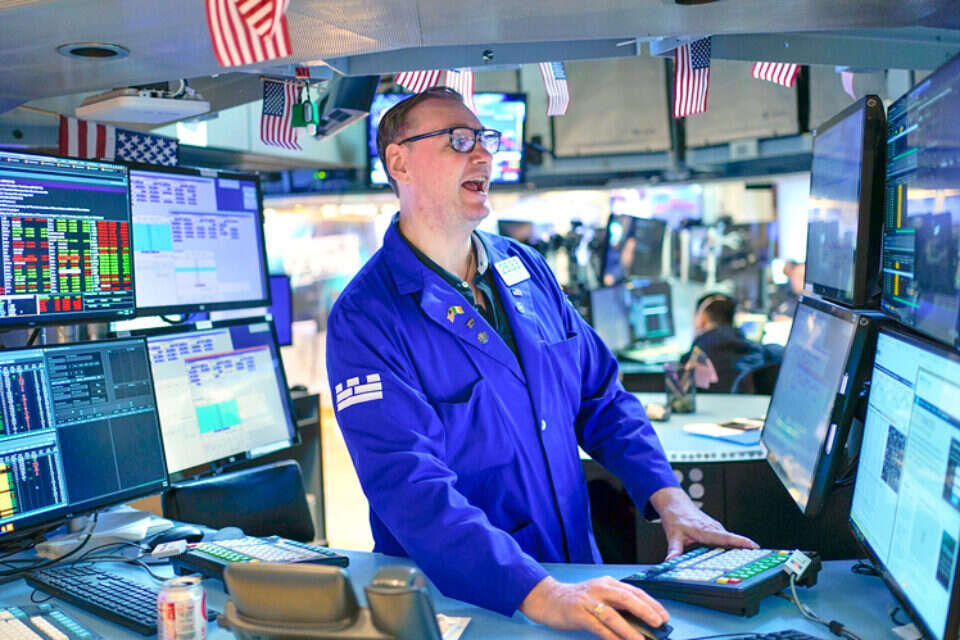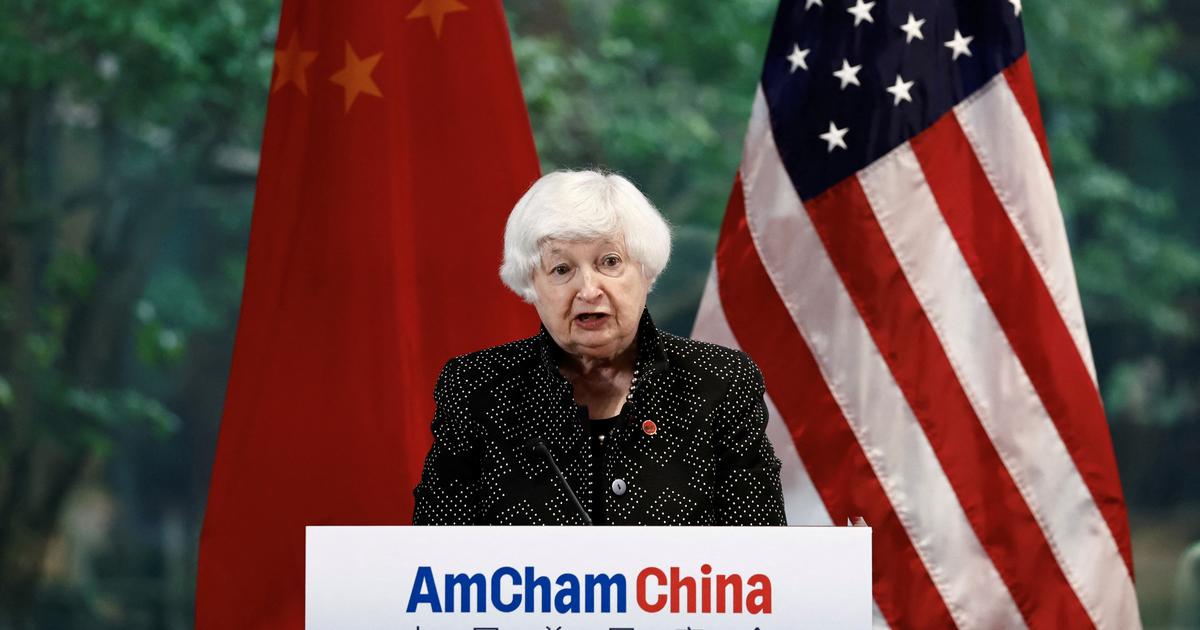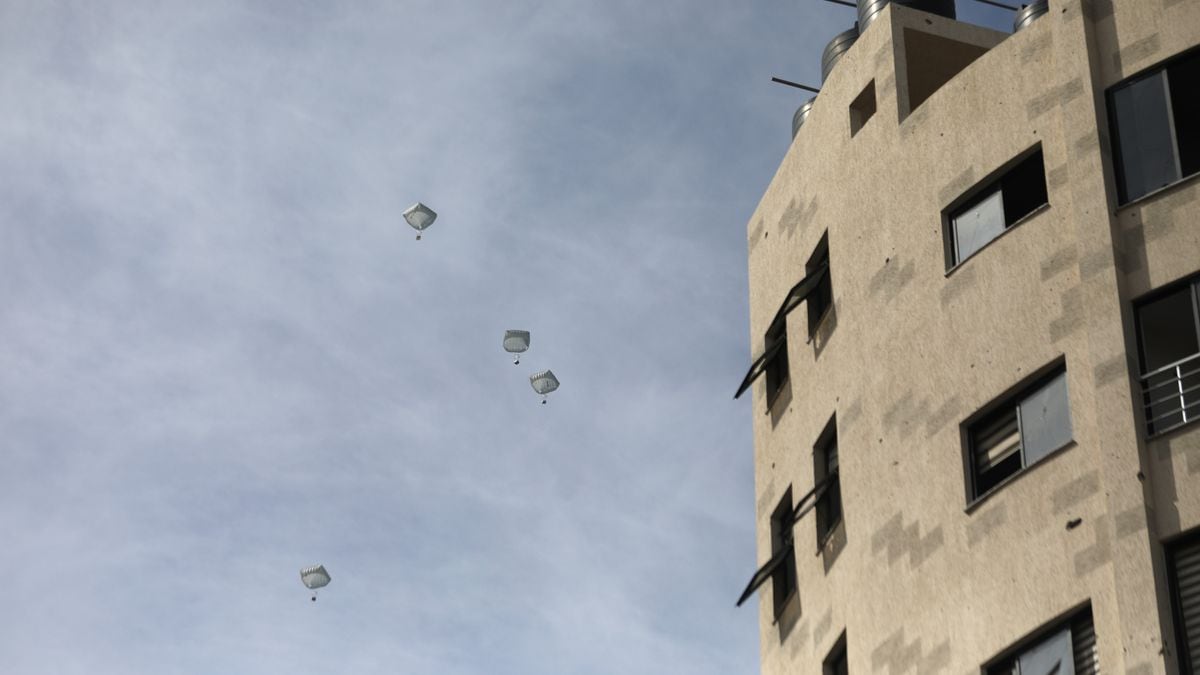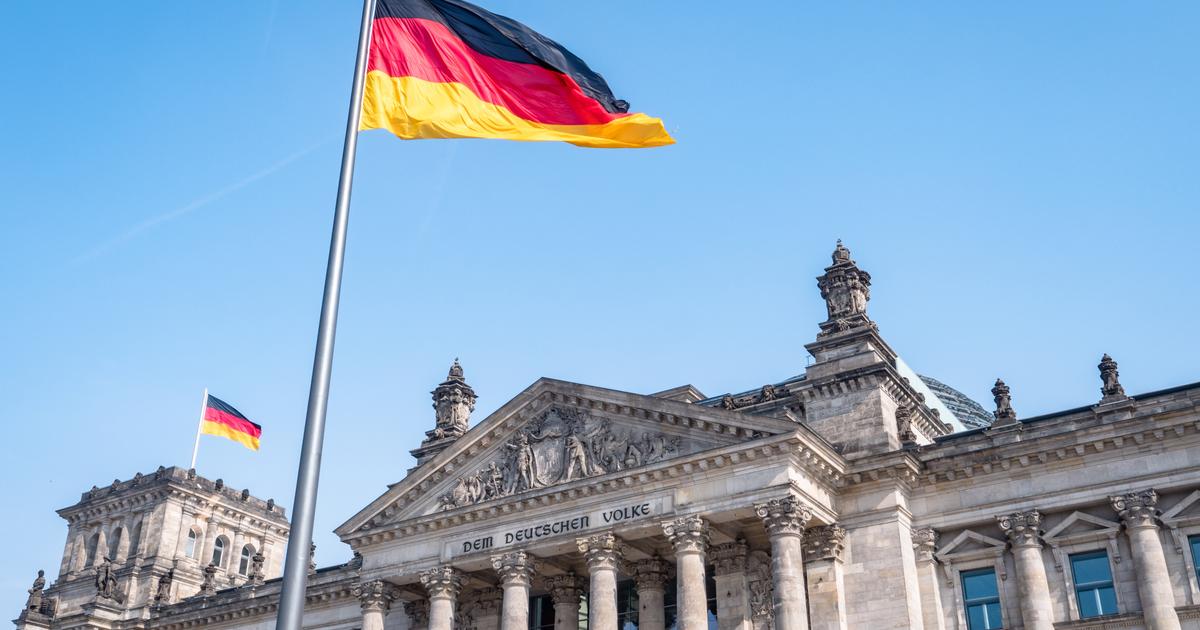That's a fact - the world is in an economic crisis right now. The war in Ukraine has led to a significant rise in energy and food prices and the powers are forced to take drastic measures to prevent a recession and a more acute crisis. The eyes are on the United States, where Biden is facing inflation peaks. In Russia, which is struggling with sanctions, the economic collapse is still far away but Putin has been forced to cut budgets. Also: Reports from Argentina, China, Germany and Japan.
USA: Fear of recession in the midst of an election campaign
Along the length and breadth of the most powerful power in the world, the rise in prices is well felt.
The phenomenon began even before the Russian invasion of Ukraine on February 24 in inflation indices that bothered the experts, and since then the situation has only deteriorated.
Now, the hovering threat in the form of crisis and recession has become the focus of the current administration's problems, a possible scenario that the White House is trying to deal with, in the midst of a mid-October election campaign.
US stocks closed the worst half year since 1970, inflation was the highest since 1981 (8.6%), and according to additional data from the domestic consumer price index, significant price increases were recorded in the energy, transportation, food and housing markets. Jumped by 40% compared to last year, in a phenomenon that also included health insurance (16%).
US President Biden will have to work very hard in the face of very low support from American public opinion, Photo: AFP
A further rise in prices was felt even at the American Independence Day celebrations (July 4), where traditional barbecue makers experienced a 17% increase in the price of table-top foods featuring ten diners.
It may not seem significant, but the cost of living is well felt in all areas of life.
The Democrats' loss in the upcoming election will have consequences not only in Washington but worldwide, as well as a future change in the leadership of the most influential power in the world.
And this without saying a word about the crisis that accompanied the corona plague, the consequences of which are still being felt.
President Joe Biden will have to work very hard in the face of very low support from American public opinion - a result that stems mainly from the economic situation in the United States.
Germany: Gas and gasoline prices rose by about 37%
High inflation and high unemployment - these are the two nightmares that keep sleep out of the eyes of many Germans.
The combination of these two phenomena led to the political instability that paved the way for the handover of power to the Nazi party in the 1930s, thus eliminating the shaky German democracy.
The high inflation recorded in recent months, record highs since the reunification of Germany in the early 1990s, and the highest level of inflation since the Arab oil embargo crisis around the Yom Kippur War, is far from the inflation Germany experienced during the post-World War I economic crisis. Rising unemployment does not come close to the harsh unemployment figures on the eve of the Nazis coming to power.
But in Germany, a country that is still afraid of its history, these are enough to get the heads of government and the financial system to talk about the danger to "social peace" in the country.
According to Chancellor Olaf Schultz, this is a "historic challenge" that will not pass soon.
Many German economists estimate that Germany is still facing "difficult years."
A mall cart in Berlin.
Chicken, beef, eggs and dough products have risen in price by more than 20%., Photo: GettyImages
German Chancellor Olaf Schultz.
His government has already allocated 40 billion euros to help the population, Photo: AP
From January this year, the average inflation rate is 6.5%, compared with annual inflation of 3.1% last year and 0.5% in 2020.
Gas and gasoline prices rose by 37%, flour rose by 33%, butter by 43%, chicken, beef, eggs and dough products rose by more than 20%.
The rise in prices has caused a panic of shopping and a shortage of certain products in supermarkets.
The German government has already budgeted 40 billion euros to help the population, and especially the weaker sections, with price increases, mainly in the field of energy supply.
Russia: After the sanctions - cuts began
While the Russian invasion of Ukraine is one of the reasons for the surge in prices and the severe inflation that has hit the world, it seems that the horror predictions about the collapse of Russia's economy as a result of the war and the sanctions of the West - are far from fulfilled.
The queues for basic products in the supermarkets that characterized the beginning of the war disappeared, even though many companies and chains left the country, and the selection of products enjoyed by the Russian public was significantly reduced.
The collapse of the ruble was also averted by a series of government actions that jumped the value of the local currency to a seven-year high.
Shopping queue, Russia.
The queues in supermarkets in Russia that characterized the beginning of the war may have disappeared, but the price of certain products in the country jumped disproportionately, Photo: GettyImages
However, annual inflation in Russia stands at 14.5 percent and the price of some products has jumped disproportionately.
While large state-owned companies such as Sberbank and Energy Corporation Gazprom have raised their wages significantly over the past two months, most Russian citizens have had to deal with the extreme rise in prices, with wages barely enough for the cost of living in pre-war Russia.
Russian President Putin.
Annual inflation in Russia stands at 14.5 percent, Photo: Reuters
In addition, due to the sanctions, the Kremlin was forced to cut the state budget.
Last week, Moscow announced a two percent cut in the total budget, mainly in transportation, security and technology.
This is a worrying trend for the Russian economy.
It is important to remember that under Russian law media reports coming out of the country are frequently and heavily censored, which is used by the Russian authorities to produce a more positive representation of its economic situation (and also the state of war), so it is not really possible to know the exact data.
Japan: It will not happen like it used to
If in the past Japan was considered one of the most expensive countries in the world, today it has been completely reversed, following the weakening of the yen.
If in 2012 the yen exchange rate was 0.052 against the shekel, now its exchange rate is 0.025, the Japanese yen has lost more than half of its value against the shekel in about ten years.
A liter of fuel in Japan costs only NIS 4.20, a meal in an average restaurant will cost about NIS 120 per couple, and a four-star hotel in the heart of Tokyo currently costs between NIS 500-400 per night per room.
In conversations with locals on a visit we made there in recent days, they explain that the price level in Japan has not risen in recent years, and the average salary in Tokyo is about 9,500 shekels a month.
As in Israel, in Japan there are wage gaps between the big city and other cities - the average wage in Kyoto, for example, is a little less than NIS 8,000 a month.
On a tour of a supermarket in Japan, you can see prices that are tens of percent lower than those we are used to seeing in Israel.
A large bottle of Coca-Cola costs about NIS 2.5, a kilogram of high-quality beef costs about NIS 50, and the prices of dairy products such as yogurt or white cheese are only NIS 4-2.
The value of the yen compared to the dollar, Photo: AFP
An example of expensive products in Japan is the fruit - a kilogram of strawberries, cherries or grapes can reach NIS 100, but this is an unusual example compared to the price level in the country.
If we remembered Japan as an expensive country, in recent years everything has been turned upside down and it is considered a very cheap destination.
When Japan opens to tourists freely, it is estimated that it will become a favorite destination for Israeli tourists, with its price level being a significant factor.
Argentina: Public distrust
The international crisis has not left the country in perpetual crisis, but in fact the locals are already accustomed to economic crises.
While the world is complaining about high inflation rates, Argentina is approaching a general price increase level close to 100 percent per year.
Meaning: If a cottage went up 10 pesos last June, today it costs 20 pesos, and this applies to all areas of life: renting apartments, bills, taxes, and especially food.
As if the high oil prices, which cause a chain effect and hurt all industries, are not enough, the Argentine finance minister recently left the post in the face of internal criticism and the cost of living in the economy with tax rates at levels that are among the highest in the West.
This also affected the local currency.
Until Monday, the exchange rate in the corresponding market (not the official exchange rate) was 235 pesos to the dollar.
However, the situation changed rapidly, and by the time of writing, the value of the currency had fallen further to 270 pesos to the dollar.
It is difficult to keep up with the pace of change, and the government in Buenos Aires does not have the tools to deal with the mistrust that prevails among the public in relation to local leaders.
Gas station in Argentina.
As if high oil prices were not enough, Argentina's finance minister recently resigned in light of the rising cost of living in the country, Photo: Reuters
The process of global economic crisis has severe effects on countries that are technically defined as "developing countries", and this may bring with it unpredictable results that will be characterized by economic instability.
In addition to this situation, there is another factor that does not necessarily exist in the rest of the countries: payment agreements with the International Monetary Fund (IMF).
Failure to meet commitments will lead Argentina into a state of insolvency.
China: First buds of inflation
Unlike the rest of the world's major economies, China has not seen a large rise in inflation and primary commodity prices in recent months.
Over the past two years, the Chinese government has made a tremendous effort to prevent price increases, despite the sharp impact of its rigid closure policy on the local economy.
However, economic entities warn that the first buds of inflation and rising prices in the country are already visible on the ground.
Meat prices, especially pork, the most consumed meat in the giant country, are steadily rising and are now at a peak of nearly a year.
The government has already informed the country’s pig farmers that it will take action against producers who stockpile meat in order to sell it at a higher price.
Demand for housing in China is declining sharply due to declining population growth, construction companies are finding themselves without buyers and in a deep economic crisis,
China is also experiencing a deep real estate crisis. Unlike countries like Israel and the US, demand for housing in the country is declining sharply due to declining population growth and a huge influx of construction, and now many construction companies find themselves without buyers and in deep economic crisis.
Yesterday, the construction giant in Shanghai "Shimao" announced bankruptcy and insolvency, less than six months after the collapse of the second largest construction company in the country, Abergrand.
The Chinese regime has made many efforts to create appropriate regulation in the housing market, but the crisis seems far from resolved.
To get out of the possibility of economic downturn, and even recession, Beijing this week announced a $ 74 billion infrastructure investment package aimed at trying to stimulate the global economy and stop the drift sweeping the global economy.
Neta Bar, Damian Pecheter, Eldad Beck and Shimon Yaish participated in the preparation of the article.
Were we wrong?
Fixed!
If you found an error in the article, we would love for you to share it with us















